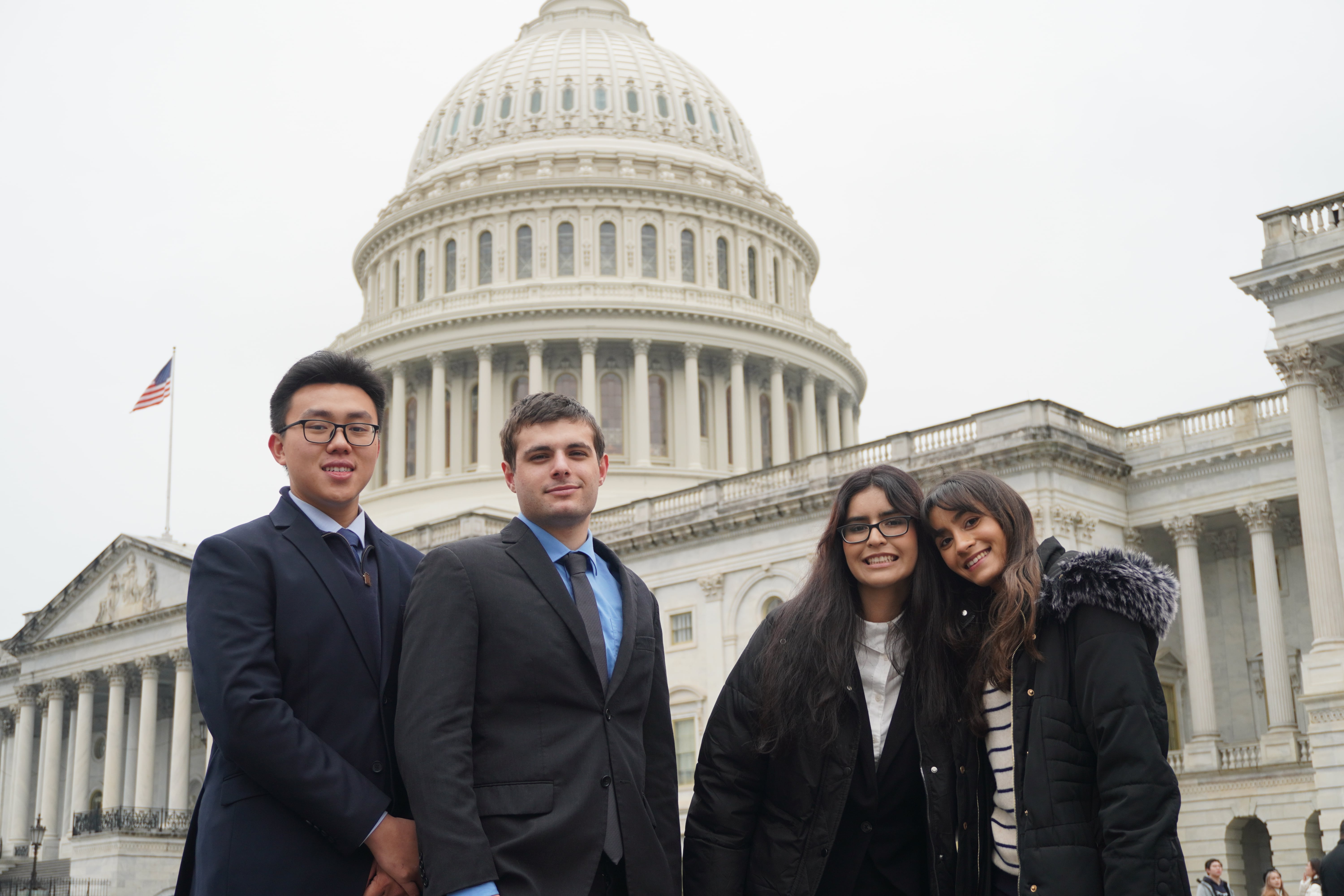Explore Our 4-Year BA Program
The BA in Public Policy equips students with the critical thinking, analytical, and practical skills necessary to address pressing societal challenges.
Graduates of the undergraduate program are well-prepared for careers in:
- Government agencies at the local, state, and federal levels
- Non-profit organizations and advocacy groups
- The private sector, particularly in fields related to public affairs
- Graduate programs in public policy, law, public health, and related fields
If students are looking to earn their Master in Public Policy following their BA in Public Policy, we offer a BA/MPP program where both degrees can be earned in a five-year plan of study.
Why get a BA in Public Policy? See the benefits and return on investment here.
Degree Requirements
Applications
The application filing period for prospective first-year and transfer students for the Fall Quarter is October - December. Please refer to the UCR Undergraduate Admissions webpage for specific deadlines and up-to-date information.
FAQs
-
What is the difference between Political Science and Public Policy?
Per the U.S. Department of Education’s Classification of Instructional Programs, "Public Policy Analysis" is a "program that focuses on the systematic analysis of public policy issues and decision processes. Includes instruction in the role of economic and political factors in public decision-making and policy formulation, microeconomic analysis of policy issues, resource allocation and decision modeling, cost/benefit analysis, statistical methods, and applications to specific public policy topics."
Further, they define "Political Science and Government" as a "program that focuses on the systematic study of political institutions and behavior. Includes instruction in political philosophy, political theory, comparative government and politics, political parties and interest groups, public opinion, political research methods, studies of the government and politics of specific countries, and studies of specific political institutions and processes."
Public policy students learn:
- How to design public policies that promote efficiency, equity, prosperity, and justice
- How to implement public policies effectively
- How to document the effects of public policies and people and the natural world
- How to evaluate whether policy is working as intended and whether it is having unintended effects
- How and why policy change happens
Political Science is the study of how policy is. It is a study of power.
Public Policy is, by contrast, the study of how policy should be and can be.
-
Can I double major?
Yes! Many students double major while in the BA in Public Policy program. Common second majors include Education, Economics, Political Science, and Sociology, but we encourage students to explore multiple different majors to find a blend that best fits their career goals.
-
Am I required to take math courses?
Yes, MATH 004 (or its equivalent) is now required for all Public Policy majors.
-
How long does the program take to complete?
The BA in Public Policy program is a four year program, with most students taking the full four years to complete it. If you are interested in earning a master's degree, check out our BA/MPP program where a BA and Masters in Public Policy can be completed simultaneously in a five-year plan of study.
-
Can I specialize in a specific policy field?
Yes, you can personalize your degree through electives. As part of your BA in Public Policy requirements, you must take eight public policy electives in any policy area of your choosing.
We offer courses in the following policy areas:
- Environmental Policy
- Health Policy
- Poverty and Income Policy
- Water Policy
- Income and Wealth Inequality
- Crime, Justice, and Drug Policy
- Migration and Citizenship
- Discrimination and Identity (Race, Sex, Gender, Religion)
- Housing and Homelessness
- Urban and Community Development
- Agricultural Policy
- Energy Policy
- Democracy, Corruption, and Voting
- International Policy
- Education Policy
- Geographic Sciences and Policy
-
What graduate programs can I go into with a BA in Public Policy?
Our students commonly seek out the following graduate programs:
- Law School
- Master of Public Health
- Master of Social Work
- Medical School
- Post Graduate Fellowship
- Master of Public Policy
However, a degree in public policy is multi-disciplinary and can open doors to many different paths of study.
-
What careers can I pursue with a degree in Public Policy?
Our public policy graduates work in multiple fields, including:
- Non-Profits
- Governmental Agencies
- Elected Office
- Private Sector
Our alumni have job titles such as:
- Councilmember
- District Representative
- Workplace Health Supervisor
- Policy Director
- Program Manager
- Public Communications Officer
- Legislative Aide
- Associate Attorney
- Policy Analyst
- Government Relations Representative
Many career paths can be pursued with a BA in Public Policy. Reach out to our Career Counselor, Laura Sosa, at laura.sosa@ucr.edu to explore options best suited to your goals!
Drop In Hours
Join our recruiter during our Application & Admissions Drop In Hours for a chance to ask questions about our programs, deadlines, funding, research, and more.
Hosted on a weekly basis on Monday and Wednesday, 12:00-1:00 PM. These sessions are online only.
Advising Appointments
Need advising regarding our academic programs? Be sure to schedule an appointment with our advising staff where they can share more information, provide planning assistance, and answer any questions you might have.
Contact Information
For more information, please contact the Admissions and Recruitment Specialist:

